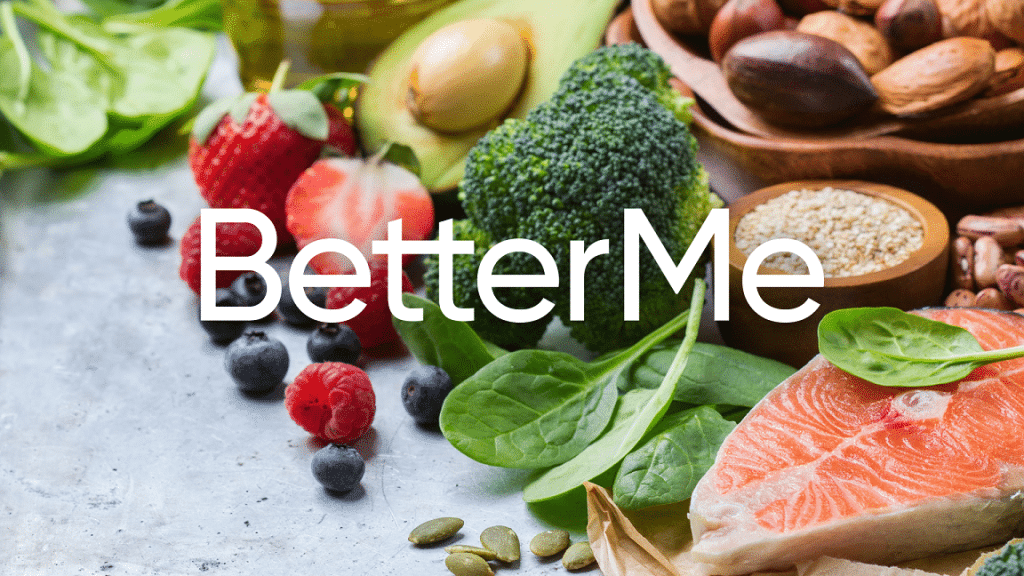You’ve probably noticed a change in hormones and weight gain after 40, and you’re not alone. Weight gain is a common part of aging, but it doesn’t have to be a bad thing or something that just happens to you.
You can take steps to counter the weight gain and body composition changes that tend to come with age. Diet and exercise are two very important parts of this process so let’s take a look at both of them in detail. But first, we’ll look at all the reasons why the pounds may pile on so fast once you hit a certain age.
Reasons For Unexplained Weight Gain After 40
There are several reasons why weight gain progresses rapidly after 40. The most common causes, which also make losing weight after 40 difficult, are:
Hormonal Changes
When people reach the age of 40 or so, hormone changes start to occur. The amounts of various hormones in the body slowly decline or shift and this can lead to unwanted weight gain (7). Hormone changes can trigger weight gain in several ways. They affect how food is used or stored, they can increase appetite, and they can cause cravings for certain foods.
As hormone levels change, more fat tends to accumulate in the hips and waistline. Men and postmenopausal women are prone to weight gain in the abdominal area because of hormonal shifts which promote fat storage in this area over others.
Changes in hormones can affect appetite as well as metabolism. When hormone levels change, feelings of hunger may occur more often than usual. This can cause people to eat more, which in turn causes weight gain (8).
Hormone changes may also affect the way that certain foods are metabolized by the body (8). Certain hormones interacting with each other may lead to cravings for carbohydrates, for example. These cravings can lead to overeating and weight gain.
Lower energy levels due to hormone shifts may make it difficult for older people to exercise. Inactivity causes weight gain, which can add pounds at any age.
Slower Metabolism
Metabolism, the rate at which your body burns calories, does decrease with age, especially after 40. This can be accelerated by medical problems and medications. When your body’s ability to burn energy begins to decline it puts you at risk of gaining weight.
Read More: The Menopause Diet 5 Day Plan To Lose Weight In No Time!
There are two mechanisms causing slower metabolism:
Thyroid Issues
The thyroid is a gland in the neck that produces hormones. The primary hormone produced by the thyroid is thyroxine which helps regulate metabolism and energy production. Hypothyroidism means that this gland does not produce enough thyroxine which will slow down your resting metabolic rate. As you age, the thyroid becomes less active and is more likely to be underactive. As a result, the production of thyroxine could decrease and you may experience slowed metabolism (11).
Loss Of Muscle Mass
Muscle tissue burns more calories than fat tissue, so losing muscle mass will decrease your resting metabolic rate. As you age, your body naturally tends to lose muscle tissue and gains fat. This might be partly because your body’s hormonal profile changes with age. The growth hormone that helps build muscle is produced in greater amounts during your childhood years when you are growing rapidly. As you age it declines steadily and eventually reaches very low levels which causes loss of muscle tissue (13).
Loss Of Lean Muscle
Male or female, on average after age 40 your body starts to lose muscle mass at a rate of 3 to 8 percent per decade. With less muscle comes lower metabolism and an increased risk of obesity, diabetes, heart disease, and other health problems that come with poor body composition (13).
Insulin Resistance And Weight Gain After 40
As you grow older, your body tends to naturally become less sensitive and more resistant to insulin (1). Exactly why insulin resistance (when the body doesn’t respond the same way to insulin) occurs isn’t completely understood.
Insulin resistance simply means that the body is less responsive to the hormone that ‘unlocks’ cells so they can absorb sugar from the bloodstream for energy. In people who are insulin resistant, blood glucose levels remain higher than normal after eating, and the pancreas responds by producing more insulin (1).
Most experts believe that insulin resistance is caused by a combination of genetics and obesity – not simply because fat cells produce chemicals called cytokines, but also because being overweight or obese tends to interfere with other hormones too, like leptin (the satiety hormone) and ghrelin (the hunger hormone) (1).
When you’re insulin resistant, your body’s tissues become less effective at absorbing glucose from the bloodstream to use for energy. You may feel hungry more often, and crave sugar or fatty foods because your body assumes it needs to take in food to replenish fuel stores. This can contribute to weight gain (1).
Poor Appetite Cues
Poor appetite cues after 40 can be attributed to a range of factors, including hormonal changes, stress, and anxiety. In particular, hormones that regulate appetite, like ghrelin (which tells you when you’re hungry) and leptin (which tells you when you’re full), fluctuate after 40. This makes you eat more even when you’re not using up all that food for energy. In short, it makes it harder to tell when you’re full (3).
Lack Of Physical Activity
When we reach 40, we may experience some common conditions and health problems such as arthritis and obesity (2). One less talked about issue is the fact that we become less active. This is because of many factors including the peak of our work careers, children getting older, responsibilities at home, injuries from sports or from aging joints, and a general sense of being tired.
BetterMe app is a foolproof way to go from zero to a weight loss hero in a safe and sustainable way! What are you waiting for? Start transforming your body now!
Tips For Losing Weight After 40
Here is how you can use diet and exercise to overcome weight gain after 40:
Go On A High Protein Diet
One of the main causes of weight gain at this age is loss of lean muscle. If you’re not eating enough protein, that decline could happen even faster. A high protein diet is also important because it burns more calories than any other macronutrient when digested (about 25% of the calories when burned vs 5-10% for carbs and fat) (5).
There are other benefits of eating more protein – it increases your satiety hormones, reduces cravings for sugary foods, and helps you feel full (5).
Some of the best protein sources to include in your diet are:
- Lean red meat
- Poultry
- Fish
- Beans
- Low-fat dairy products
Eat Low-Carb, Leafy Green Vegetables
Leafy greens are high in fiber, which helps you feel full for longer. These vegetables also contain essential vitamins and minerals that nourish your body (14). Some of the top leafy green vegetables you can include in your diet are:
- Kale Spinach
- Collard Greens
- Broccoli
- Arugula
- Asparagus
Eat Healthy Fats
You should also eat healthy fats every day to improve your health and well-being, prevent disease (such as heart disease), and help keep weight off. Just remember that not all fats are created equal – some are healthy while others contribute to risk factors for cardiovascular disease (17). Healthy fats you can eat more of include:
- Nuts and Seeds: Almonds, cashews, peanuts, walnuts, and macadamia nuts
- Fish: Salmon, herring, anchovies, and sardines
- Avocado
- Healthy oils such as olive oil or canola oil
Ditch Refined Carbs
Refined carbs provide your body with simple sugars that are easy to overeat and can lead to weight gain (12). These include white breads and pastas made from white flour; baked goods like cakes and cookies; starchy vegetables like potatoes; sugar-sweetened beverages like soda; fruit juices; honey; agave syrup; and other processed foods.
Instead of these foods try whole grains (such as quinoa, oats, whole wheat bread), which provide healthy complex carbs your body can use for energy.
Eat More Of Anti-Inflammatory Foods
Consuming anti-inflammatory foods may help reduce muscle pain after exercise and prevent chronic conditions associated with aging like osteoporosis. Some of the top anti-inflammatory foods you can include in your diet are (6):
- Spices: Turmeric, ginger, oregano, basil, paprika, black pepper
- Nutrient rich veggies such as broccoli and spinach
- Omega 3 fatty acids from salmon or sardines
- Fruits: Blueberries and strawberries
- Green tea or green coffee beans
Eat More Fiber
One way to lose weight after 40 is to eat foods high in fiber, which helps you feel full for longer. Also, fiber provides many other health benefits such as improving metabolism, preventing constipation and diverticulosis, supporting healthy digestion, and helping you feel full and satisfied (16).
Fiber is found in foods like whole grain breads and cereals; fruits; vegetables; beans; nuts; seeds; lentils.
Read More: How Did I Gain 2 Pounds Overnight? What You Need To Know About Weight Fluctuations
Prioritize Whole Foods Over Processed Ones
One of the most important things to do after 40 is to limit processed foods that are loaded with sugar, refined grains or unhealthy fats. These can not only contribute to weight gain but might also increase your risk for conditions like arthritis, osteoporosis, type 2 diabetes, stroke, heart disease, cancers and dementia (12).
Make sure to eat more whole foods – they provide the body with high quality nutrients that help you feel energized and can decrease your risk of chronic diseases later in life. Some of the best foods to eat during your 40’s include:
- Blueberries
- Nuts and seeds
- Whole grains like quinoa, oats, brown rice or buckwheat
- Lean meats like turkey or chicken breast and fish
- Fresh fruits and veggies
Keep A Food Journal To Monitor Your Cravings
Keeping a food journal can help you identify the feelings that trigger certain cravings, so these can be dealt with in a different way to reduce your chance of weight gain. It’s also important to write down how you feel when you eat certain foods – are you focused or distracted? Do they make you feel satisfied or hungry soon after?
Reduce Your Portions To Match Your Slower Metabolism
After 40, the metabolism slows down up to 5% each decade (9). So what was once a healthy amount of food is now more than you need. If you notice your clothes don’t fit as well it could mean that you’re eating too many calories and need to cut back – by 300 per day is a good place to start.
Practice Mindful Eating
Mindful eating can help you slow down and give your body the chance to feel full before overeating. You can practice mindful eating by putting down silverware between bites, chewing your food slowly, paying attention to how many times you actually need to swallow food until you are satisfied, sitting at a table during meals instead of in front of TV or computer, stopping when you are full.
Fire Up Your Metabolism Through Exercise
Working out is another way to lose weight after 40 by increasing your metabolism and burning more calories than you would during a normal day. It doesn’t have to be an intense workout either – simply getting active can make enough of a difference, especially if it’s something you enjoy like walking or hiking. Strength training is also an important part of building or maintaining muscle which helps keep the metabolism humming along at full speed (15)!
Do Cardio Regularly
Cardio workouts are great for helping lose weight after 40 because they burn extra calories that can further boost your body’s fat-burning potential while strengthening your heart to protect against diseases later in life (4)! Some examples include jogging, dancing, swimming and biking.
Switch Up Your Workouts With Yoga, Meditation Or Tai Chi
These types of exercises can lower cortisol levels which helps reduce weight gain and improve stress management making you feel calmer throughout the day – all good things for staying healthy! Tai chi is especially helpful because it combines gentle movements with deep breathing, so it’s easy enough to fit into your day no matter how busy you are. Adding different styles of exercise into your daily routine is also a great way to get more active!
Intense sweat sessions, working weight loss tips, lip-smacking recipes come in one package with the BetterMe app. And all of it is at your fingertips, start transforming your life now!
Prioritize Stress Management
As you get older, managing stress levels becomes important to your health. Stress can cause the body to release chemicals that increase cortisol levels which lead to weight gain so it’s vital to find ways to manage stress like exercising, practicing yoga, meditating or spending time outdoors (10).
Prioritize A Good Night’s Sleep
After 40, you’ll need at least 7 hours of sleep per night and it’s also important to transition into a consistent bedtime schedule. Lack of sleep can affect your metabolism, appetite, and the hormones that control the stress response in the body making it hard to lose weight (18).
Some ways to improve the quantity and quality of sleep you get every night are:
- Limit caffeine after 2 p.m.
- Avoid screen time for at least an hour before bedtime
- Create a sleep routine like doing relaxing activities like taking a bath (and maybe even one with epsom salts to help muscles relax!) before calling it a night.
The Bottom Line
It’s important not to be too hard on yourself if your weight isn’t where you want it after 40 – that’s normal – just keep doing what works for your body and remember that slow and steady wins the race. And lastly, remember that 40 is just a number – even though our bodies may change as we age (and yes this includes things like hair loss, wrinkles, and changing hormones), we can still be healthy and happy throughout our lives.
Get your personalized
meal plan!
DISCLAIMER:
This article is intended for general informational purposes only and does not address individual circumstances. It is not a substitute for professional advice or help and should not be relied on to make decisions of any kind. Any action you take upon the information presented in this article is strictly at your own risk and responsibility!
SOURCES:
- Age, Obesity, and Sex Effects on Insulin Sensitivity and Skeletal Mitochondrial Function (2010, nih.gov)
- Aging and health (2021, who.int)
- An overview of appetite decline in older people (2015, nih.gov)
- Caloric expenditure of aerobic, resistance, or combined high-intensity interval training using a hydraulic resistance system in healthy men (2015, nih.gov)
- Effect of a High-Protein Diet Versus Standard-Protein Diet on Weight Loss and Biomarkers of Metabolic Syndrome: A Randomized Clinical Trial (2017, nih.gov)
- Foods that fight inflammation (2020, harvard.edu)
- Hormonal and Metabolic Changes of Aging and the Influence of Lifestyle Modifications (2020, mayoclinicproceedings.org)
- Hormonal regulation of appetite and food intake (1998, tandfonline.com)
- How Much Does Your Metabolism Slow Down as You Age? (2020, webmd.com)
- How Too Much Stress Can Cause Weight Gain (and What To Do About It) (2020, orlandohealth.com)
- Hypothyroidism (2020, clevelandclinic.org)
- Increased consumption of increased carbohydrates and the epidemic of type 2 diabetes in the United States: an ecological assessment (2004, oup.com)
- Muscle tissue changes with aging (2010, nih.gov)
- Nutrients and bioactives in green leafy vegetables and cognitive decline (2018, nih.gov)
- Resistance training is medicine: effects of strength training on health (2012, nih.gov)
- The Health Benefits of Dietary Fiber (2020, nih.gov)
- The truth about fats: the good, the bad and the in-between (2019, harvard.edu)
- Why lack of sleep is bad for your health (2021, nhs.uk)
















